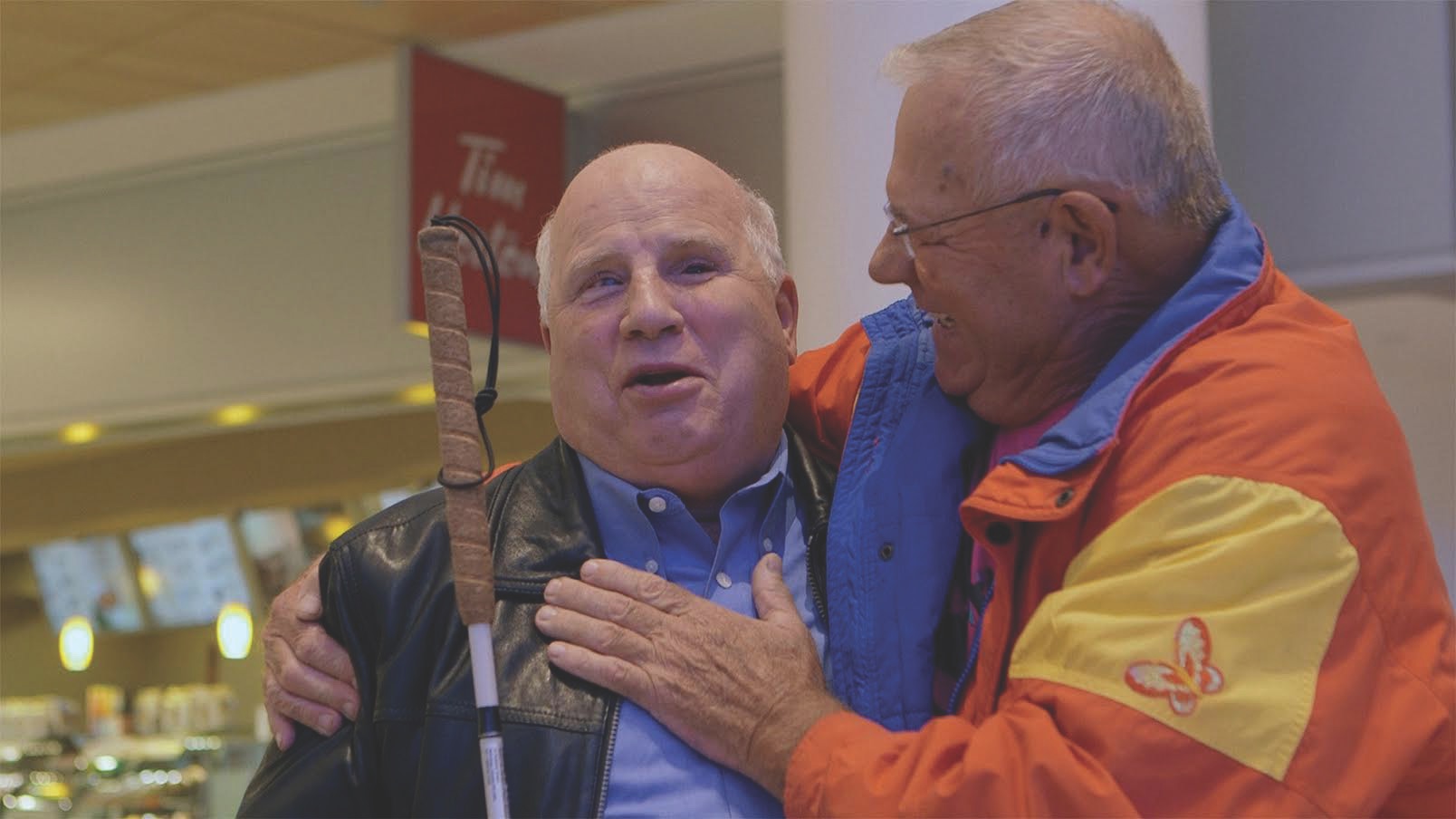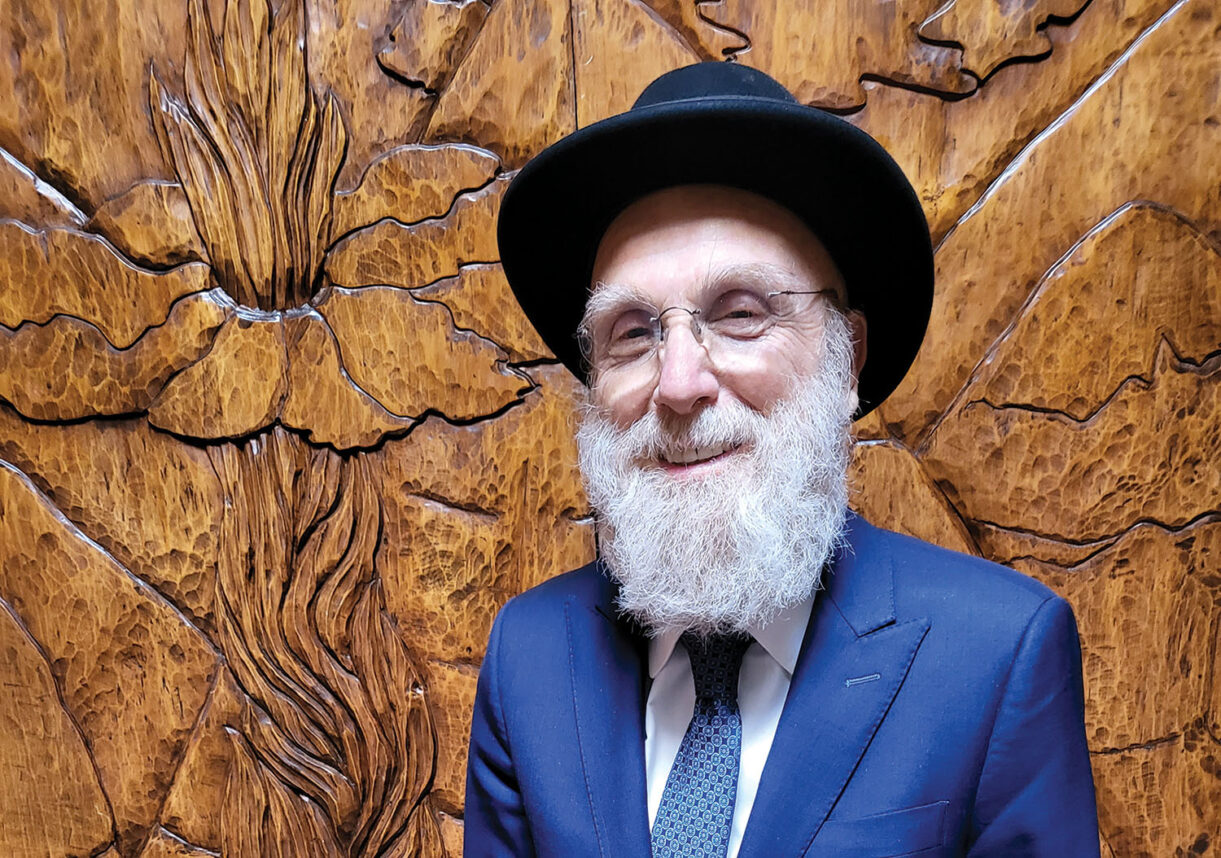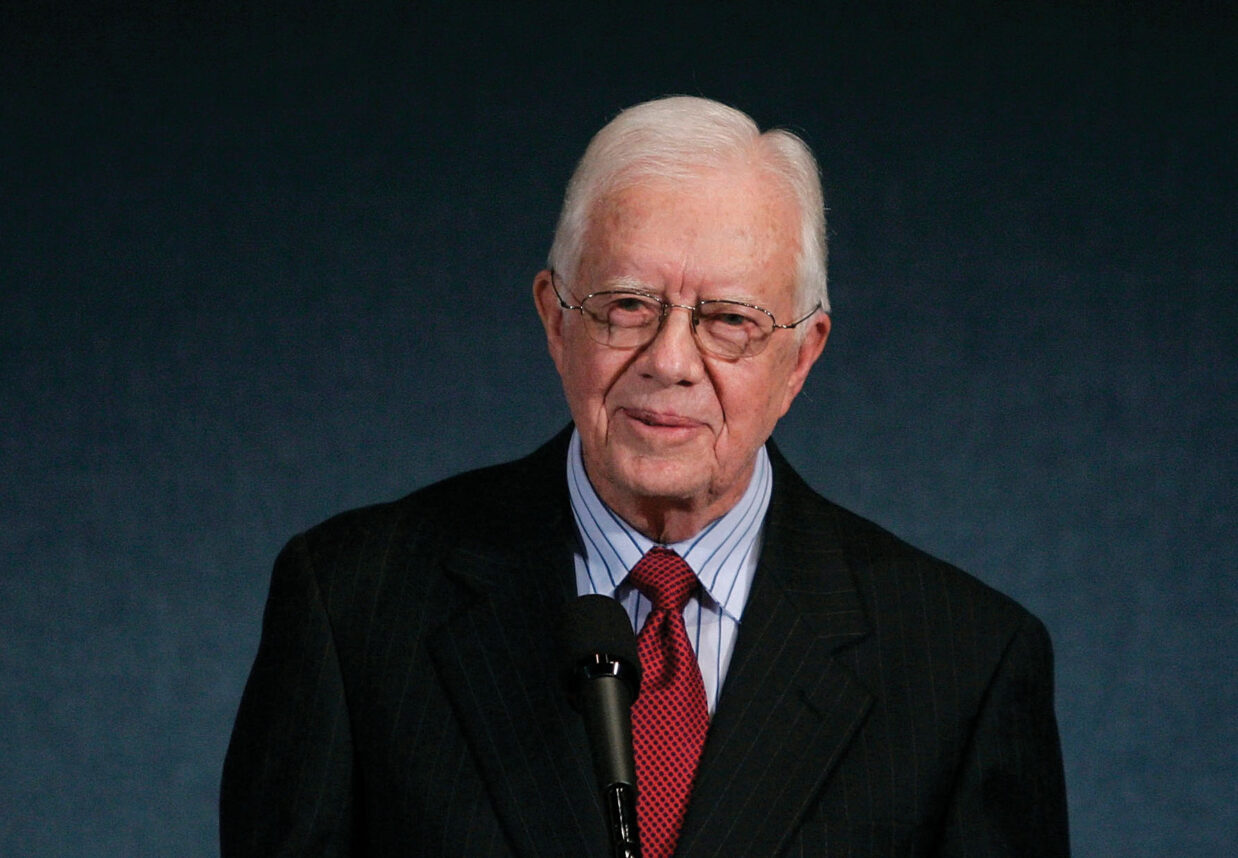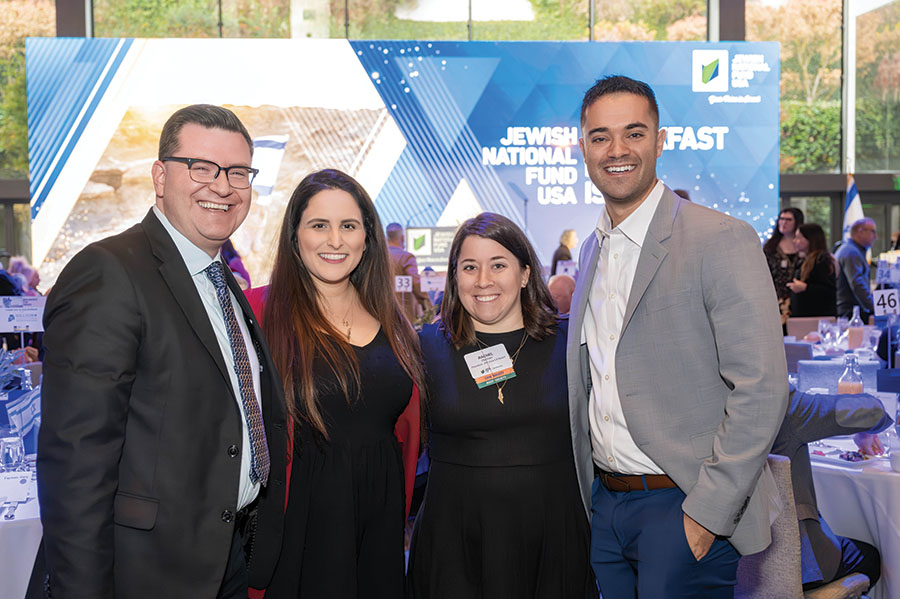
Izak Szewelewicz was born in the Bergen-Belsen displaced persons camp in 1945. When he was 3, his mother, Aida, sent him to Israel to live with an adoptive family.
Growing up, Izak didn’t know he was adopted. Then, before he turned 13, Aida made contact with her son. They reunited at Izak’s bar mitzvah and stayed in touch. She would fly from Canada, where she lived, to visit him in Israel.
When Izak asked about his father, Aida said his name was Grisha, and he had been killed in the war. Izak didn’t probe further.
Flash forward many years. Izak, nearly 70, has a family of his own. His relatives have made a pact never to reveal the truth: Izak has a brother. But one day the secret comes out, sending Izak on a life-changing journey.
“We’re two brothers trying to learn about each other after 68 years.” – Shep Szewelewicz
That quest is the subject of the film “Aida’s Secrets,” which will be shown on Oct. 27 at Laemmle Town Center 5 in Encino; Laemmle Royal in Los Angeles; and Laemmle Playhouse 7 in Pasadena.
Israeli Alon Schwarz, Izak’s nephew through marriage, directed the film. It documents the family’s journey as it seeks out Izak’s long-lost brother, with help from a genealogy-research firm.
“I went through months of research,” Schwarz said. “You build stories in your head. We built a timeline. It was something very personal for me to finally have this happen in front of my eyes.”
The family locates the brother, and — 20 minutes into the 90-minute film — Izak goes to Winnipeg, Canada, to meet him. His name is Szepsyl Szewelewicz, or Shep. He is 10 months younger than Izak and blind.
“It was quite a shock to get a call saying you have a brother,” said Shep during a phone interview. “We’re two brothers trying to learn about each other after 68 years.”
It turns out that Shep had never met his mother, Aida, who was living in a Canadian nursing home at the time of filming. Grisha, or Greg, was also Shep’s father — and had survived the war. He had raised Shep and died in 2008.
At Shep and Izak’s tearful reunion in the film, they decide to visit Aida so Shep can meet her. When Aida sees Shep, she embraces him and acknowledges him as
her son.
“When you haven’t met your brother or mother for a long period of time it’s hard to take in,” Shep said. “It was with some trepidation that I went. It was nice for her to say, ‘My Shepsyl’e’ to me. It gave me affirmation that I was her child.”
Schwarz said the reunion “was like a climax of emotions. We didn’t even know if she would acknowledge Shep. Everybody in the room was crying except Aida. But she was very emotional.”
Shep visits Aida a few more times, trying to get more answers out of her. She won’t divulge whether Izak and Shep had the same father — or that there is a third brother (as the family discovered independently).
Shep said Aida was tight-lipped because of the horrors she saw during the war. She had to learn to be quiet and guarded in order to survive.
As a teen, Aida was forced to work for a German woman, a Nazi, said Schwarz, the director: “She probably got abused by Nazi soldiers.”
Aida died in 2016, and Shep and Izak are in occasional contact. During the filming, Shep visited Israel for the first time and celebrated Passover with his brother. After growing up an only child, Shep said, he enjoyed sharing the seder with 20-plus relatives. “It was really lovely. I never had that.”
“Aida’s Secrets,” first released in 2016, has played at film festivals around the world. After screenings, “people hug me, they kiss me, they get emotional,” Schwarz said. “For me, the film has been the closing of a circle.”
“Aida’s Secrets” will screen Oct. 27 at Laemmle Town Center 5, 17000 Ventura Blvd., Encino; Laemmle Playhouse 7, 673 E. Colorado Blvd., Pasadena; and Laemmle Royal, 11523 Santa Monica Blvd., Los Angeles.























 More news and opinions than at a Shabbat dinner, right in your inbox.
More news and opinions than at a Shabbat dinner, right in your inbox.